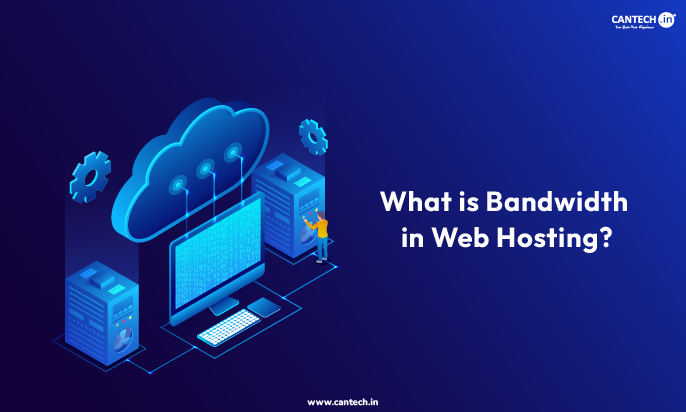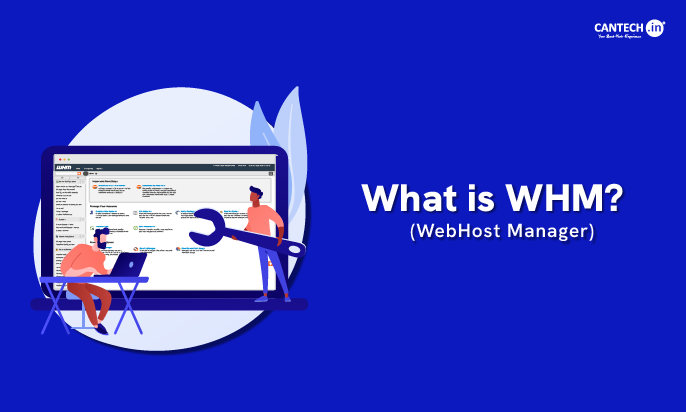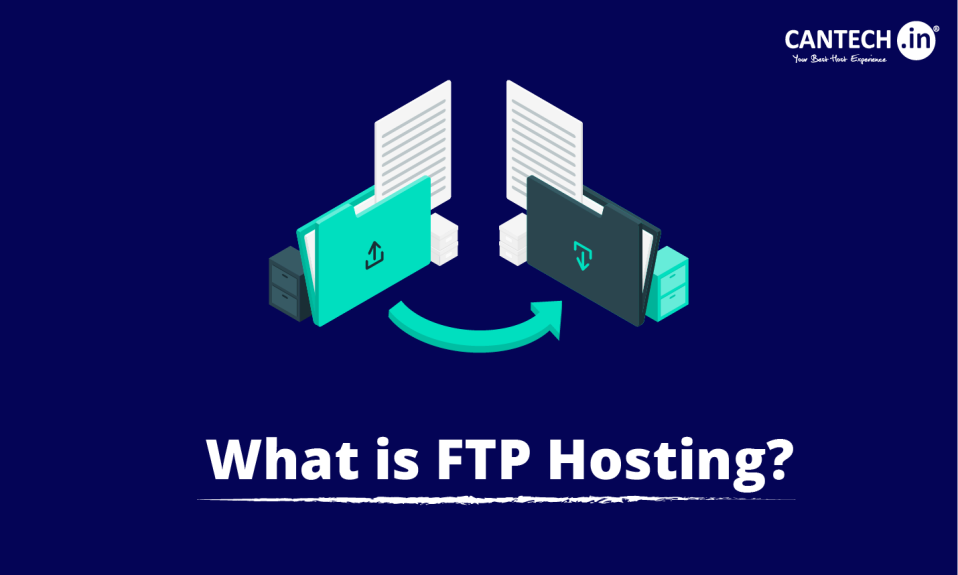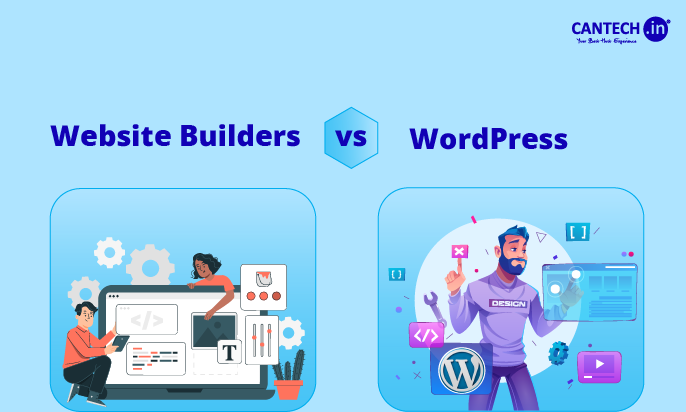Websites today are the cornerstone of any business. The surprising fact is around 2,52,000 websites are created every day!
Omg, that’s a whopping number, isn’t it!
Well, visitors love websites that look amazing, have astonishing fonts, animations, and are easy to navigate. But, just designing a super-awesome website is not enough. To put simply, that’s just 1% of 100. You need something that’s beyond this.
Here’s where the context of web hosting comes in. Are you new to this or have mastered the knowns and unknowns? Nothing to worry about!
We’re up with an in-depth blog that explains everything about web hosting, including its working, types of web hosting services, use cases, and more.
Without any further ado, let’s run through it!!
Knowing What is Web Hosting?
The exact meaning of web hosting is, basically an online service that provides the necessary resources and infrastructure for your website to be accessible on the internet.
Every website you visit is stored on a web server. In plain words, the web hosting provider offers server space to store your website’s files and data, along with the necessary technology, support, and resources to ensure your website functions super smoothly.
The amount of space a website gets on a web hosting server depends on the different types of web hosting services. The key ones are:
- Shared hosting
- VPS hosting
- Reseller hosting
- Cloud hosting
- WordPress hosting
- Dedicated server hosting
Well, each of the hosting options differs in terms of server space they offer, features, cost, and more. You can pick the one that best meets your requirements and helps you to flourish online.
In a nutshell, understanding what web hosting is is the footstep to getting started in the online world.
How Does Web Hosting Work?
To clear your concept easily, let’s take an example. Say you type in a website address in the address bar, www.cantech.in from your mobile, desktop, or tablet.
Now, the request is sent over the internet to a web hosting server that hosts your site. This server, a physical computer that runs continuously, responds by loading the necessary files and displays the website.
Hosting a website all by yourself needs advanced technical skills and infrastructure. Alternatively, a web hosting service provider takes the burden off your shoulders by handling all the techie tasks for you.
Another key part is, the provider manages server, security, software installation, and troubleshooting, ensuring your site is available and accessible to visitors around the globe 24/7. To share in simple terms, web hosting companies store your website data on their servers to deliver it to visitors, with next-gen performance, iron-clad security, and 24/7 expert support to resolve any tech issues.
Difference Between Web Hosting and Domain Name
Web hosting and domain name are important when it comes to online presence. Want to know more about the same? This section will take you through the differences between web hosting and domain name.
A domain name is basically the address of a website. This is what you type in the browser. For example: www.cantech.in, as discussed above. A domain name is the unique identity of your business. It’s short, specific, and makes it easy for users to recall your website.
To get a domain name, you can get started with a reliable domain registration provider.
On the other hand, web hosting is where your website files, databases, images, and content are stored on the server. For visitors to view your website, it’s vital to store it on a server, with the aim of getting it on the online platform. In a nutshell, web hosting is a spacious house where a website lives, while a domain is the address that points to that house.
Types of Web Hosting Services
Let’s now discuss the different types of web hosting services. Each of them differs in terms of web hosting features, pricing, and use cases. Here are they:
Shared Hosting
Shared hosting is a type of web hosting service wherein your website is hosted with numerous other websites on the server. Along with sharing the server space, you share the RAM, bandwidth, etc., with others. Getting started for the first time with minimal investment, shared hosting is the best fit.
Pros:
- Ideal for beginners and small-scale websites.
- It’s one of the most affordable web hosting options.
- Shared hosting provider in India like Cantech offer control panels to make your hosting journey smooth. The web hosting provider takes care of all the server maintenance, security updates, along with 24/7 expert support.
Cons:
- As server resources are shared with others, high traffic or resource-intensive sites can affect your site’s performance.
- Vulnerabilities in other sites on the same server can pose a security risk to your website.
Want to learn more? Check out what is shared hosting for a detailed explanation.
VPS Hosting
VPS hosting is an upgrade from shared hosting, offering a virtual server that’s similar to a physical server, even though it’s shared by multiple users. You have complete control over the server, thus it’s named as a virtual and private server.
When you opt for VPS hosting, you get root-level access to the server, but at a lower price than a dedicated server.
Get the best of both worlds – shared hosting and dedicated hosting. It’s a great option for hosting high-traffic and growing businesses.
Pros:
- You have complete control and customization over the server.
- No resource sharing, you get 100% dedicated resources.
- Scalable, allowing you to adjust resources as your site grows.
Cons:
- It’s little expensive than shared hosting.
- Requires technical knowledge for server management.
Want to know more about what is VPS hosting? Checkout this guide for a detailed explanation.
WordPress Hosting
WordPress hosting is a popular web hosting service that offers the necessary infrastructure to host sites built in WordPress. It caters to the requirements for WordPress websites, offering an optimized environment and powerful features tailored to boost security, performance, and more.
We at Cantech, offer best WordPress hosting in India that includes one-click WordPress installation, malware scanning and removal, a free SSL certificate, and a free domain, everything to make your hosting the journey smooth and secure.
Pros:
- Easy one-click WordPress installation for quick setup.
- Free SSL certificate to boost your site security.
- Daily backups ensure data protection and easy restoration.
Cons:
- Limited customization options for advanced users.
Cloud Hosting
Cloud hosting utilizes a network of multiple servers to host websites, ensuring high availability. Here, when one server goes down, another takes over, making it an ideal choice for websites requiring constant uptime, such as eCommerce stores.
In simple words, the cloud hosting provider uses cloud computing technology to form a big server with massive resources. Cloud hosting is an effective hosting option that’s reliable, scalable, and accessible.
Pros:
- You get higher uptime and reliability due to server redundancy.
- Can handle sudden traffic surges.
- Pay-as-you-go pricing for flexible costs.
Cons:
- Can be more expensive than shared hosting.
- More complex to manage for beginners.
Curious to know more? Explore what is cloud hosting and see how it can transform your website’s performance! 🚀
Dedicated Servers
Dedicated server hosting is the most premium option, providing a server exclusively for your website. With no resource sharing, your site benefits from improved performance, uptime, and enhanced security, making it perfect for resource-heavy applications like media streaming, online gaming, and communications.
A dedicated server is like a powerhouse, as the whole server is all dedicated to you.
Pros:
- Dedicated resources, full control over the server.
- High performance, security, and reliability.
- Ideal for resource-intensive websites/projects.
Cons:
- Is more expensive than other web hosting options.
Although dedicated servers can be pricier than other hosting types, the performance and customization they offer make them an ideal choice for businesses that demand the best. What is a dedicated server? Find out more now!
Use Cases of Web Hosting
Every online goal starts with the need of web hosting. Here are the five popular use cases:
Online Presence for Businesses:
Companies need a top platform to establish their online presence, share information about their products or services, and reach customers globally.
E-commerce Websites:
Online businesses need secure, reliable hosting to manage their products, facilitate transactions, and ensure a smooth shopping experience for customers.
Blogs and Personal Websites:
Individuals passionate about getting their blogs or personal sites online, need web hosting.
Application Hosting:
Developers and businesses building web applications need a platform to host and deploy their applications for users to access efficiently.
Educational Platforms:
Educational institutions need web hosting to provide learning materials, provide resources, and support interactive online learning experiences for students.
Now you might be thinking, how to choose the right web host for fulfilling all the online needs. Below are some of the factors that’ll clear your answer.
Factors to Consider Before Choosing the Right Web Hosting Company
Control Panel
For the easy management of your hosting account, you need an easy-to-use control panel such as cPanel. Check for a hosting provider that offers the same for users of all skill levels to work with.
Customer Support
Support is the heart and core of every online business. 24/7 customer support is essential if you face any technical issue with your website. Check if the web hosting company offers good customer support you can rely on anytime.
Security
Security of websites is paramount. Make sure the web host offers all the security features such as SSL certificate, DDOs protection, automated backups and more.
Online Reviews
Before choosing a web host, it’s essential to check out their reviews online. This will give you an overview of how they meet the expectations of customers.
Now that you’ve understood the factors to consider before choosing a web host, it’s time to explore the best web hosting provider – Cantech.
About Cantech’s Web Hosting
Cantech is a trusted web hosting provider with decades of industry experience, delivering reliable and affordable web hosting solutions for businesses of all sizes.
We focus on high performance, security, and customer satisfaction. Plus, Cantech offers a range of web hosting options tailored to suit different needs. Right from shared hosting to High-powered dedicated hosting, we’ve got you covered.
Our Key features include 99.97% uptime, robust security with malware scanning, weekly backups, range of hosting plans, a free SSL certificate, and 24/7 customer support.
The plans are scalable, allowing businesses to upgrade as they grow, all at cost-effective prices. With one-click installations and user-friendly control panels, Cantech makes web hosting efficient, backed by years of expertise and a commitment to helping customers succeed online.
What is Web Hosting? FAQs
What is web hosting and why is it essential?
Web hosting is a type of online service that lets individuals, SMBs or large-scale businesses to store their website files, databases and more, to make them accessible online. You simply need web hosting to make your website visible to visitors online and enhance your brand’s credibility.
Is web hosting necessary for a website?
Of course! You’ll need web hosting to make your website visible to users online. Otherwise, only developers will be able to view it.
How much does web hosting cost?
The cost of web hosting depends on the hosting plan you choose. If you’re starting for the first time, shared hosting is the perfect option, while if you’re looking for a big powerhouse, a dedicated server is your way to go. Here at Cantech, we’ve got web hosting plans that perfectly fits your budget.
What is hosting and domain?
To define the two terms, here’s what it is: Hosting is a type of online service that lets individuals, online hustlers and organizations store their websites on the server, with an aim of making them accessible online to visitors.
On the other hand, domain is a unique identity to business, it’s a web address that users type in the address bar to view a specific website. Domain and hosting both are essential for a successful online presence.
Can I host my own website?
Ofcourse! You can host your own website! All you need to do is, get started with a reliable web hosting provider like Cantech. Thereafter, pick a web hosting plan that best meets your requirements. We offer budget-friendly plans alongside top-class features like, free SSL certificate, domain, 24/7 support, SSD NVMes and a lot more For more information, about our plans, you can visit here.
What are types of Web hosting?
There are different types of web hosting services catering to meet varied business requirements. Following we’ve mentioned them:
Shared Hosting: In shared hosting, multiple websites are hosted on the same server, sharing server resources such as RAM, bandwidth and more with others. It’s the best web hosting for small business or blogs with low to moderate traffic.
Managed WordPress Hosting: Optimized specifically for WordPress sites, with features like automatic updates and improved security, WordPress hosting is built for WordPress websites. You get professional support tailored to WordPress, top-notch WordPress features, making it perfect for WordPress fanatics who want a hassle-free experience.
VPS Hosting: VPS hosting is a type of hosting service that utilizes virtualization technology to divide a physical server into multiple virtual private servers, offering dedicated resources for your websites. You get better performance and more control. This option is great for websites that need more robustness and flexibility without the cost of dedicated hosting.
Dedicated Hosting: A dedicated server is a type of remote server that’s dedicated entirely to your website/app. Single tenant, no-noisy neighbors, thus you don’t have to worry about other website’s traffic affecting yours. Dedicated servers offer excellent performance, security and customization options, ideal for large-scale projects.
Cloud hosting: Uses multiple servers to handle traffic spikes and improve reliability, making it more scalable and convenient. It offers pay-as-you-go pricing, making it easy to adjust resources based on demand.
At Cantech, we offer a range of web hosting services as mentioned above. You can choose one according to your business needs. Rest assured to receive a smooth and stress-free online experience while hosting with us.
Related reading:
What is Shared Hosting?
What is Dedicated Hosting?
What Is VPS Hosting?
What is Cloud Hosting?
Different Types of Web Server








